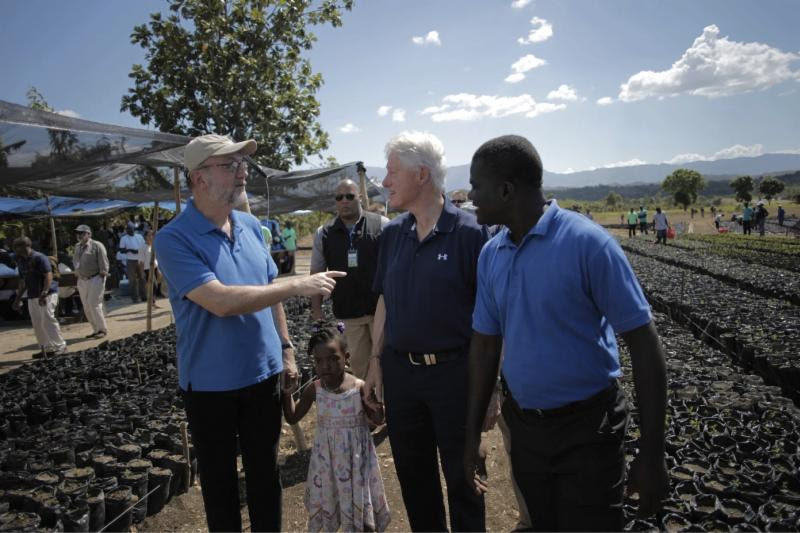The problem is that this collective effort does not factor into much of the recent media coverage about the Clinton Foundation in Haiti, in which we have occasionally been characterized as duplicitous or more frequently rendered invisible. Ok, this is a political season and hard questions have to be asked in order for democracy to work at its best. We get it. But sometimes it is not all about politics. Would it be possible to introduce a little balance and for our work not to be minimized in support of a political narrative?
More than half of the Haiti Action Network members do not receive any funds from the Clinton Foundation, although some do (my organization included). The main benefit of membership is that we help each other out and collaborate in addressing common development challenges. The Haiti Action Network is our community, Bill Clinton is our mayor and Digicel owner Denis O’Brien chairs our regular town meetings.
Let me share two examples of how this works, drawn from a recent Network meeting.
My colleague Timote Georges and I shared with the group that our Smallholder Farmers Alliance was finding it difficult to figure out which organic certification standard to use for our farmers. Other groups shared similar challenges and three of them said they would reach out to agricultural groups they knew in other developing countries for their experience. At this point the Minister of Agriculture joined the conversation and asked if Network members focused on farming would meet with him next month to see if together we could come up with a national database for both organic certification systems and related best practices.
Several in the group raised the problem of a lack of soil testing facilities in Haiti. One member representing a local agriculture school explained they have a lab that could be expanded to provide an external testing service, but this would require investing in additional equipment. Those of us needing soil testing agreed to put our future needs in writing so that the agriculture school could use this data to justify expanding their lab by identifying Network members as future paying clients.
Both these examples cost nothing, but their benefits could be significant. And while we don’t know the outcome of either yet, they got started because of the Network.
I also wanted to share the following June 2, 2015 article from the Washington Post that stands out because it gives a more balanced look at the Clinton Foundation. And for the record, the caption for the lead photo in the article should read “Bill Clinton, center, talking with Hugh Locke and Timote Georges, co-founders of the Smallholder Farmers Alliance, in Haiti in February.”
The little girl in the photo had earlier walked up to President Clinton and handed him a leaf she had made into a sculpture, and then made it clear she was not going to let go of his hand and so she was part of our briefing.
| Bill Clinton, center, talks with members of a for-profit farming cooperative in Haiti in February.
(Andres Martinez Casares/Reuters) |
|
|

